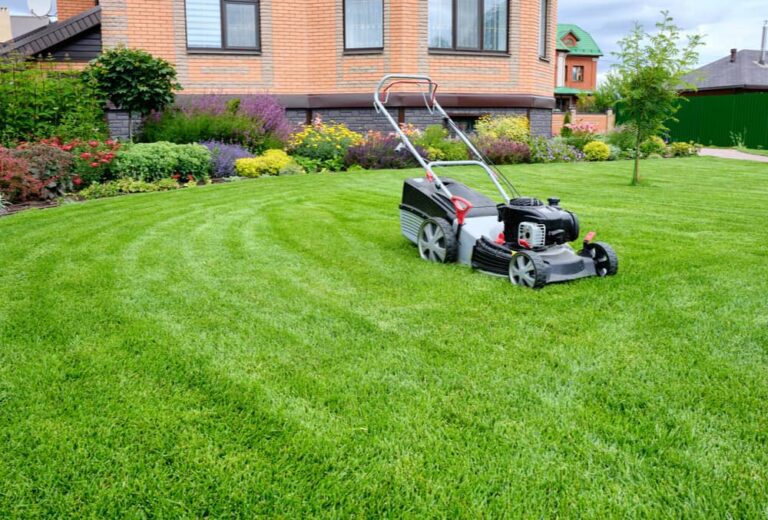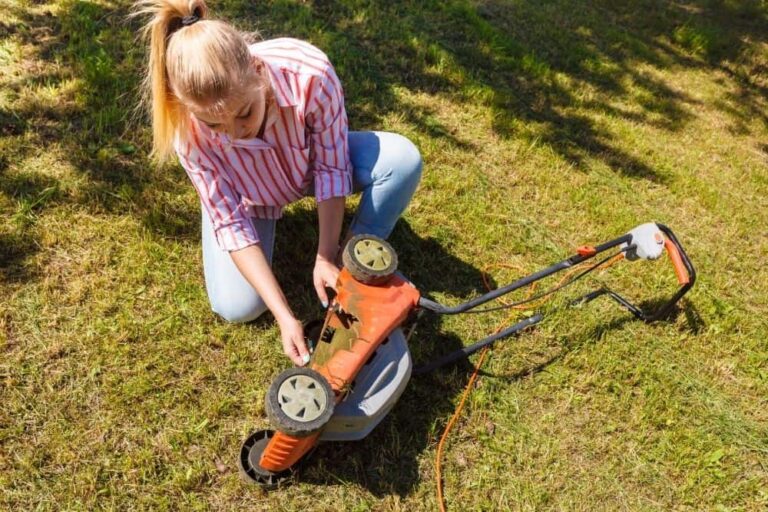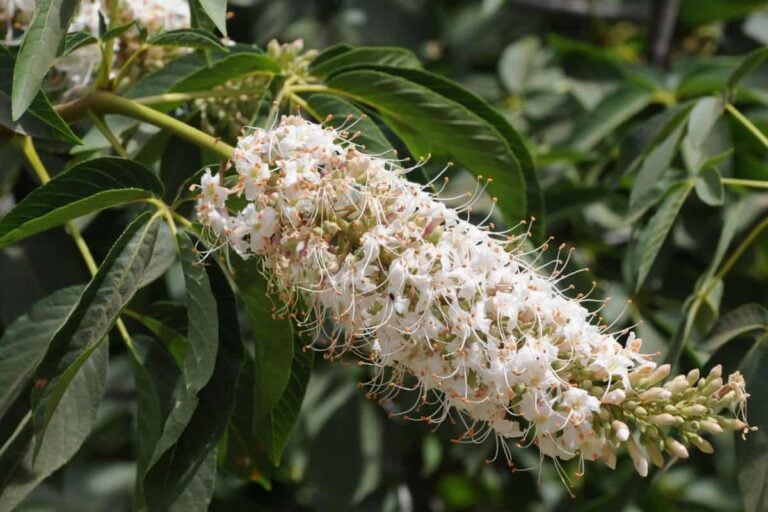10 Peaceful Plants for Feng Shui
Feng shui is all about balance. The system comes from ancient Chinese principles that focus on balancing one’s environment to create peace and tranquility, both within the environment and within the body.
According to feng shui principles, your home environment reflects what’s going on inside of you. By removing clutter and adding items – like plants – that promote positive Qi, or energy, you can create a harmonious atmosphere that’s good for the body and soul.
Open up the energy of your room and elevate your Qi with these 10 peaceful plants for feng shui.
The Basics of Feng Shui
The phrase, “feng shui,” means wind and water, which relates to its most basic philosophy of how a person relates to his environment. According to feng shui ideology, a sense of peace from within comes from the environment in which one lives. Feng shui, then, focuses on creating a tranquil atmosphere through the placement of furniture and plants, strategic color placement, organization, natural elements, and more.
The foundation of feng shui comes from three main concepts or principles, although several others also build the ideals of feng shui:
- Qi, also known as chi. Qi is the universal energy that feng shui provides, both within your immediate environment and in your body. The primary goal of feng shui is to maximize and achieve Qi through furniture and decor placement, colors, and organization.
- Five Elements. The Chinese believe that the Five Elements – Wood, Earth, Metal, Water, and Fire – work together within a space to create a more balanced life. Different patterns and colors represent each of the Five Elements, such as Water represented by black and dark colors and wavy patterns. By adding some colors and patterns for each of the elements in strategic places throughout your rooms and home, you can achieve Qi.
- Yin and yang. Yin and yang is the Chinese theory that everything in the Universe has a complete opposite. Yin is a passive energy with black and dark colors, while Yang is an active energy of white and light colors. When you apply this to feng shui, you’ll see that Yin principles are abundant in calm areas, like the bedroom, and Yang principles are active in more energetic places, like the dining room.
The Importance of Placement
One of the best ways to achieve Qi in your home is to follow feng shui placement concepts. Everything in a room or home should have a purposeful placement for proper flow and energy, according to feng shui. In your bedroom, for example, a bed should sit diagonally from the door so that you can see if someone comes into your room. And, furniture should never block a doorway or your view of the door.
It’s also important to make sure you keep Qi in your home. If your front and back doors are across the home from each other without anything blocking them, Qi may escape. A decorative screen may help hold positive energy within a space.
The Importance of Color
The Five Elements theory glorifies color in feng shui. Certain colors energize, whereas other relax, the body. It’s important to place them in the right rooms in your home to maximize Qi energy and create the proper atmosphere for that room.
And, you’ll want to use colors from each of the Five Elements so that they can work together correctly, but you don’t need to use them all in each room. For example, you can decorate your home office with earthy tones that represent the Earth and create a focused and stable environment. Blues and blacks are best for the bathroom since they help improve concentration and calmness.
The Importance of Organization
Flow is one of the most important pieces of the feng shui puzzle. If you bump into furniture, decorations, or clutter in a room, you may disrupt the flow of feng shui. It’s better to keep rooms in your home on the minimalist side than trying to cram too much into one space.
Additionally, it’s important to ensure that everything has its place. Loose papers should remain neatly tucked away in file cabinets, and toys can store neatly in toy boxes. You also shouldn’t see anything with which you use to clean, such as cleaning products, mops, or brooms, as they could promote negative energy in the home. If possible, you can store them outdoors or in a closet.
How to Use Plants in Feng Shui
Feng shui is primarily based on colors, patterns, and placement of furniture and decor. But, natural elements are equally as important to achieving Qi in your home and separate rooms. When you bring plants and other natural elements from the outdoors inside, you may increase productivity and happiness, according to the principles of feng shui.
The key to creating a harmonious balance between the indoor and outdoor world with feng shui is to use plants that are known to bring positive energy into your space. Real plants must be used rather than artificial plants to create the right energy flow, and you must take good care of them to keep them healthy and allow them to bring positivity into your space.
How Can Plants Help Feng Shui?
Many different plant species can cleanse the air and provide other health benefits that are also thought to increase Qi within the home. Think of your plants as a natural way to promote indoor cleanliness, breathable air, and a positive mood through their aesthetic appeal.
It’s important to note that natural elements in feng shui aren’t just plants, but also natural sunlight, wood features, decor that reflects nature, and water elements. These can all work together with plants to create an inviting, peaceful atmosphere that makes you feel at one with nature.
In relation to feng shui, plants bring much of the natural aspects needed to achieve balance and positive energy in your environment. Plants bring in colors that represent the Five Elements and also promote a lot of Earth energy, which produces stability, productivity, and comfort within a space.
Essential Feng Shui Practices for Plants
As with furniture and decor, feng shui has rules for plants to help you create the right balance between outdoors and indoors. If you overdo it, you could throw off the energy of a room. But, if you have a small space to work with, you may find it difficult to create a balance.
First, remember that having at least one plant with positive energy in each room is better than none, even if it’s small. You don’t have to place large plants in a space for positive Qi, as even a small one atop a desk can help. Try to place your plant or plants in a way that works with the furniture and decor in a space, rather than as a separate piece of the space. It should feel as though your plants seamlessly fit within the space as a part of the natural environment.
Also, you should be very mindful of your plants and understand how important they are to the overall Qi of your space. Plants must be well-kept, so you should have a good understanding of how to care for each plant in your home. Dead or dying plants can promote a negative energy within a space, so be sure to discard of them as soon as possible. Try to steer clear of plants with thorns, as they can create an uninviting energy.
Strategic placement of plants is important for feng shui. It’s best to place them near entrances to your home and rooms, such as hanging plants near the front door or a floor plant near the door of a bedroom. You can also use them to cover corners and other architectural lines, like sloped ceilings, which increase negative energy in a space. Keep plants away from pathways or views of the doors and windows in a space to promote positive energy and air flow.
10 Great Plants for Feng Shui
Although several plants can lend well to your home’s feng shui, the following are some of the best for bringing positive energy and clean air to a space. Some plants are best for individual rooms, as they can promote a particular mood based on their colors and shapes that represent the Five Elements of feng shui.
Pachira Plant (also known as the Feng Shui Money Tree)
The pachira plant is more commonly known as the Feng Shui Money Tree, based on ancient Chinese beliefs that it brings prosperity to those who grow it. Practitioners of feng shui believe that the shape of the pachira plant’s leaves lend to one’s success and luck, and may even attract money and wealth. And, the colors and shape of the pachira plant represent all of the Five Elements, which means that the plant brings harmony and balance to a space.
For the most success with your pachira plant, you can place it near where you keep your money, such as atop a drawer that holds your checkbook or on a desk near a cash register of your business. The pachira plant can grow quite large, though, unless you choose one of its smaller counterparts, like the bonsai version. So, be sure you choose the right size plant for your space, so it doesn’t overwhelm the room and throw off the natural balance.
Bamboo
When incorporating bamboo into your feng shui design, you’ll need to make a few tweaks to ensure that it represents all Five Elements. Surround the bottom of the plant with rocks in its pot to represent Earth, and plant it in a glass or metal pot to represent Metal. Most feng shui bamboo plants come with a small red ribbon tied around its base to represent the Fire element. The plant itself represents Wood, while the water used to nourish it represents Water.
A bamboo plant in your home may bring good luck to you and your family. Bamboo is typically an easy plant to care for, so it’s one that you won’t need to fuss with much. But, like any other plant in your home, the only way to reap its lucky benefits is to keep it healthy and looking its best. Bamboo plants grow strong and can live a long time, which is why Chinese culture reveres it as a lucky plant.
Silver Crown
The Silver Crown is an indoor or outdoor plant for feng shui. This plant is also relatively easy to grow and take care of, and usually, needs only a couple of thorough waterings every month when it’s indoors. The Silver Crown plant’s spoon-shaped leaves become more silver in color the larger it grows. In ancient Chinese beliefs, silver may bring good fortune. And, it’s considered a lucky plant when it’s cared for.
If you choose to keep your Silver Crown indoors, you should place it in the living room or main meeting area of your home. It can also work well in your home office. If you plant it outdoors, be sure to give it plenty of space to spread. Its best spot is near the front entrance of your home or near the driveway or path to your home, which can bring luck to all who enter.
Lady Palm
The beautiful Lady Palm is a unique plant that fares well indoors but may grow up to six feet in your home, so be sure to give it plenty of space. If the Lady Palm touches your ceiling, it can lend negative energy to your feng shui home. Lady Palm is a lucky plant that works best in the wealth area of your home, like a home office or living room. But, if it becomes tall enough to touch the ceiling, you may have reached your limit for success, according to feng shui beliefs.
The Lady Palm is also an air-purifying plant that can improve the overall air quality of your home, which also is important for feng shui. The plant is relatively easy to care for, but you should move it to a larger pot every two years to allow it to grow. If it gets too tall for your space, you can plant it outdoors and start a new one in your home.
Jade
Jade is one of the most popular plants in feng shui. It’s also considered one of the traditional Money Plants in Chinese culture because of the coin-like shape of its small leaves. The Jade plant is a succulent, which thrive without much extra care. In feng shui, succulents without thorns, like this plant, are used for positive energy flow and prosperity within a home. The plant grows incredibly strong, which leads to wealth and success.
You should place your Jade plant as close to your front entrance as possible to create a positive energy when you enter your home. You can also place one near the entrance of your office for good financial vibes. Alternatively, setting the Jade plant near the southeast corner of your home may bring more luck to your environment.
Peace Lily
Aside from being one of the most gorgeous plants you can place in your home, the peace lily is also an excellent air-purifying plant that can increase the air quality in a space. Peace lilies can neutralize toxins in the home, like carbon monoxide, and even formaldehyde that’s found in wood, paint, and other objects in the home. It’s best to place these plants near wood furniture or electronics that have flame-retardant materials, in which formaldehyde also lingers.
Peace lilies tend to thrive in somewhat dark, calm environments, so you can place them in shaded hallways or corners, too. They don’t grow large, so a small potted peace lily works well on dressers, desks, or end tables. You can even place one in each bedroom to improve your family’s air where they sleep. Since they’re also a symbol of harmony and good luck, a small peace lily on your work desk can bring good energy and focus.
Rubber Plant
The rubber plant is another good plant for purifying the air in your home. This plant can rid your space of several toxins, including formaldehyde. The plant’s rounded leaves not only produce positive energy in the home, but they’re also a symbol of coins and, therefore, wealth. The rubber plant is similar to a succulent in that it holds water well, which also represents a positive cash flow. These plants don’t take much time or energy to care for and will last a long time with regular attention.
The best place for the rubber plant is near the front entrance or a front hallway that leads to the rest of the home. You can also keep them in a “wealth corner” of your living room to symbolize luck in your family. However, be sure to keep it away from direct sunlight and heat, as it thrives in cool, shaded areas.
Ficus
Ficus can grow rather large, so people typically use it in feng shui to divide a large space without placing a physical barrier than can interrupt Qi through the home. If your ceilings are low, you can use a ficus plant to act as a symbolic ceiling lifter to increase the natural flow and energy in your space. This plant also removes several toxins in the home naturally, like ammonia and formaldehyde.
Ficus is also said to bring peace to a space, so it’s a good plant for the living room. The plant needs a lot of direct sunlight to thrive, so choose a place where sunlight flows naturally through windows for a good portion of the day. Occasionally turn your plant, so it receives sunlight on all sides to grow evenly and increase harmony through the home.
English Ivy
The English Ivy can remove many pollutants from the home to clear the air of harsh chemicals and toxins. It’s also one of the most common house plants, especially for feng shui. The English Ivy spreads wide more than it grows tall and will spread according to the size of the pot that it’s in. You can also place it in a plant hanger from the ceiling for it to spread downward.
This plant symbolizes strength and peace because of the binding nature of its vines that tend to cling to, and intertwine with, others. Some place English Ivy plants in the bedroom for a serene atmosphere, whereas others prefer to place it in the home office for a calm, focused environment. You can also place small plants near electronics in your home to rid the air of pollutants from flame-retardant materials.
African Violet
The beautiful African violet has rounded leaves that symbolize wealth in Chinese culture. The bright purple flowers of this plant are energizing to feng shui practices and represent prosperity, making the African violet rich with vibes of good fortune. However, too much purple in the home can throw off your harmonious balance, so you should use this plant sparingly in your space.
If you have a “wealth corner” of your living room, a small African violet placed on an end table will work well there. You can also place one on your office desk as a sign of prosperity. African violets may also symbolize a positive marital energy, so a small one in the bedroom can be a helpful mood lifter. Just be careful not to add the African violet into a room with a lot of colors, as it can affect the energy flow of your space.
Photo Credit
Photo by yoppy licensed under CC BY 2.0
Photo by Grant Guarino licensed under CC BY-SA 2.0
Photo by Allen C. Haskell Public Garden licensed under CC BY 1.0
Photo by TreeWorld Wholesale licensed under CC BY 2.0
Photo by veggiefrog licensed under CC BY 2.0
Photo by Audrey licensed under CC BY 2.0
Photo by Newtown Grafitti licensed under CC BY 2.0
Photo by Andrew Fogg licensed under CC BY 2.0
Photo by christina.sanvito licensed under CC BY 2.0
Photo by David Holt licensed under CC BY-SA 2.0




